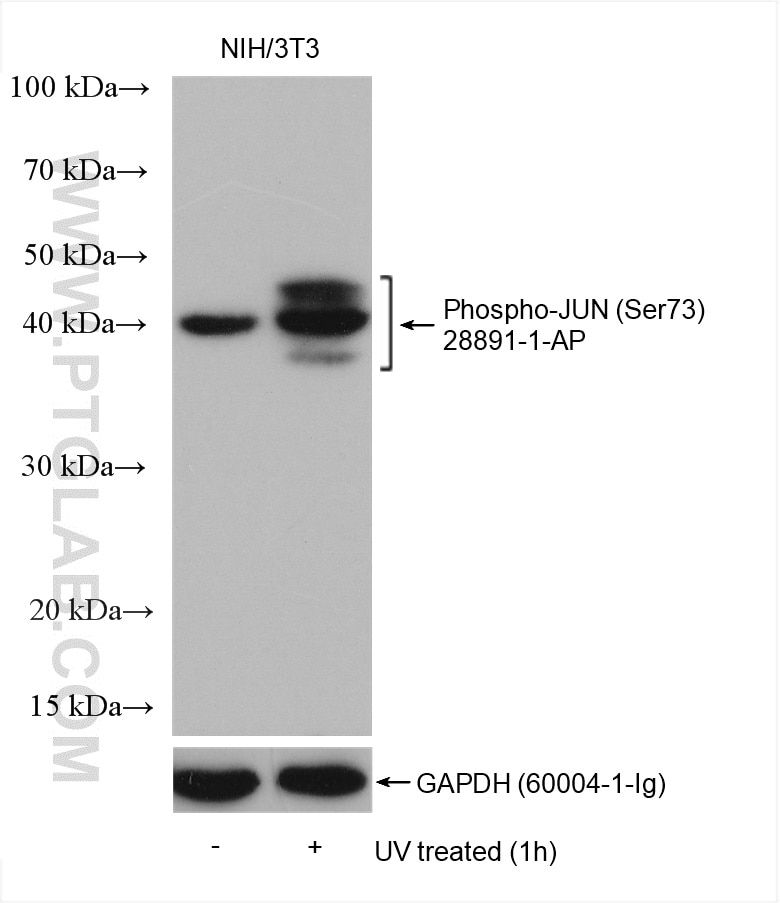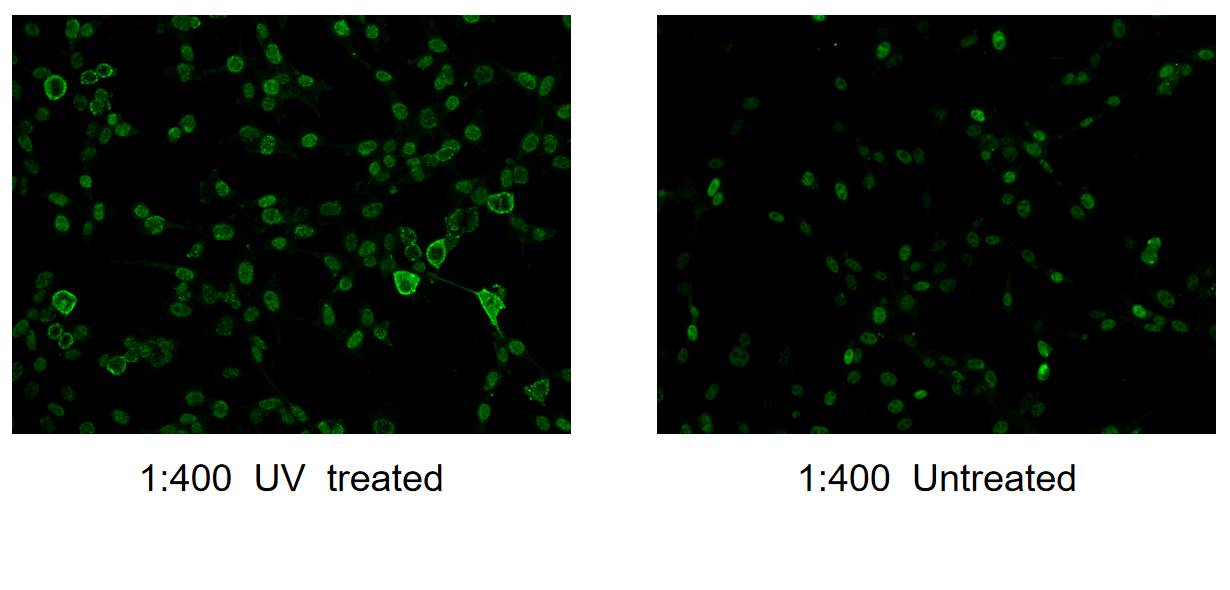Validation Data Gallery
Tested Applications
Recommended dilution
| Application | Dilution |
|---|---|
| It is recommended that this reagent should be titrated in each testing system to obtain optimal results. | |
Product Information
28891-1-PBS targets Phospho-JUN (Ser73) in WB, IF/ICC, Indirect ELISA applications and shows reactivity with human, mouse, rat samples.
| Tested Reactivity | human, mouse, rat |
| Host / Isotype | Rabbit / IgG |
| Class | Polyclonal |
| Type | Antibody |
| Immunogen | Peptide 相同性解析による交差性が予測される生物種 |
| Full Name | jun oncogene |
| Calculated molecular weight | 331 aa, 36 kDa |
| Observed molecular weight | 38-45 kDa |
| GenBank accession number | BC068522 |
| Gene Symbol | JUN |
| Gene ID (NCBI) | 3725 |
| RRID | AB_2881228 |
| Conjugate | Unconjugated |
| Form | Liquid |
| Purification Method | Antigen affinity purification |
| UNIPROT ID | P05412 |
| Storage Buffer | PBS only , pH 7.3 |
| Storage Conditions | Store at -80°C. |
Background Information
JUN is also named as c-Jun and AP1, belongs to the bZIP family and Jun subfamily. JUN, the most extensively studied protein of the activator protein-1 (AP-1) complex, is involved in numerous cell activities, such as proliferation, apoptosis, survival, tumorigenesis and tissue morphogenesis (PMID: 22180088). JUN is a transcription factor that recognizes and binds to the enhancer heptamer motif 5'-TGA[CG]TCA-3'. It promotes activity of NR5A1 when phosphorylated by HIPK3 leading to increased steroidogenic gene expression upon cAMP signaling pathway stimulation. JUN is a basic leucine zipper (bZIP) transcription factor that acts as homo- or heterodimer, binding to DNA and regulating gene transcription (PMID: 9732876). In additon, extracellular signals can induce post-translational modifications of JUN, resulting in altered transcriptional activity and target gene expression (PMID:8464713). More over, it has uncovered multiple layers of a complex regulatory scheme in which JUN is able to crosstalk, amplify and integrate different signals for tissue development and disease. Jun is predominantly nuclear, ubiquitinated Jun colocalizes with lysosomal proteins (PMID: 15469925). This antibody is raised against synthetic phosphopeptide corresponding to residues surrounding Ser73 of human JUN, which can detect the bands around 42-45 kDa.

